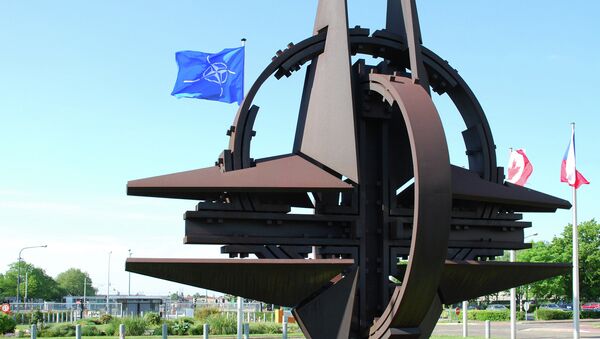MOSCOW, November 20 (Sputnik) – Cooperation between Russia and NATO has positive potential, despite Russia's increased concerns over the strengthening of the alliance's military presence along Russia's eastern borders, German experts said at a Moscow-Berlin video linkup hosted by RIA Novosti.
"Russia is not an enemy and Russia is not an opponent. Russia is a partner in any case…Russia is a very important partner for NATO, but the character of the partnership, the way the relations between Russia and NATO form depends on the good will of both of the sides," Sascha Tamm, a political expert at the Berlin-based Friedrich Naumann Foundation, said at the Wednesday linkup.
"NATO takes Russia's interests into account", Tamm stressed, adding, however, that Russia's interests are not a "decisive factor" when it comes to other countries' joining the military alliance.
"Cooperation with Russia, dialogue with Russia, needs to be conducted parallel to this process," Tamm said, emphasizing that "this cooperation is not aimed against Russia" and that "even if Ukraine becomes part of NATO, which I highly doubt…even that will not be aimed against Russia, because NATO does not intend to attack Russia from the territory of Ukraine".
According to Tamm, Germany can understand Russia's concerns over other countries' joining NATO, but despite its ties with Moscow, Germany is limited in what it can do because it is part of the alliance and is a member of the European Union.
Dr. Jorg Baberowski from Humboldt University of Berlin agreed that Germany has significant limitations in the role it can play in resolving the Ukrainian conflict, but stressed that European countries need to focus more on trying to understand Russia's perspective on the issue.
"The European side needs to understand Russia's interests in the sphere of security as well as Russia's other interests. There is a lack of such understanding, unfortunately," Baberowski said during the Wednesday video linkup discussion, which was dedicated to the Ukrainian crisis.
Since the beginning of the crisis in southeastern Ukraine, the country has been striving for closer cooperation with NATO. In September, Ukrainian President Petro Poroshenko delivered a speech to the US Congress claiming that Ukraine needed strong US support, including a special status within NATO.
US President Barack Obama declined to give Ukraine a special status of a non-NATO ally.
Meanwhile NATO has been placing additional forces in the Baltic region after a political crisis erupted in Ukraine in February and Crimea reunified with Russia in March.
Relations between Russia and the West have deteriorated significantly as Western politicians and media have repeatedly accused Russia of meddling in Ukraine's internal affairs and aiding independence supporters in Ukraine's southeast.
Moscow has repeatedly denied the allegations, expressing concern over increased NATO military presence along Russia's eastern borders, which, according to Russia, could undermine global strategic balance.

